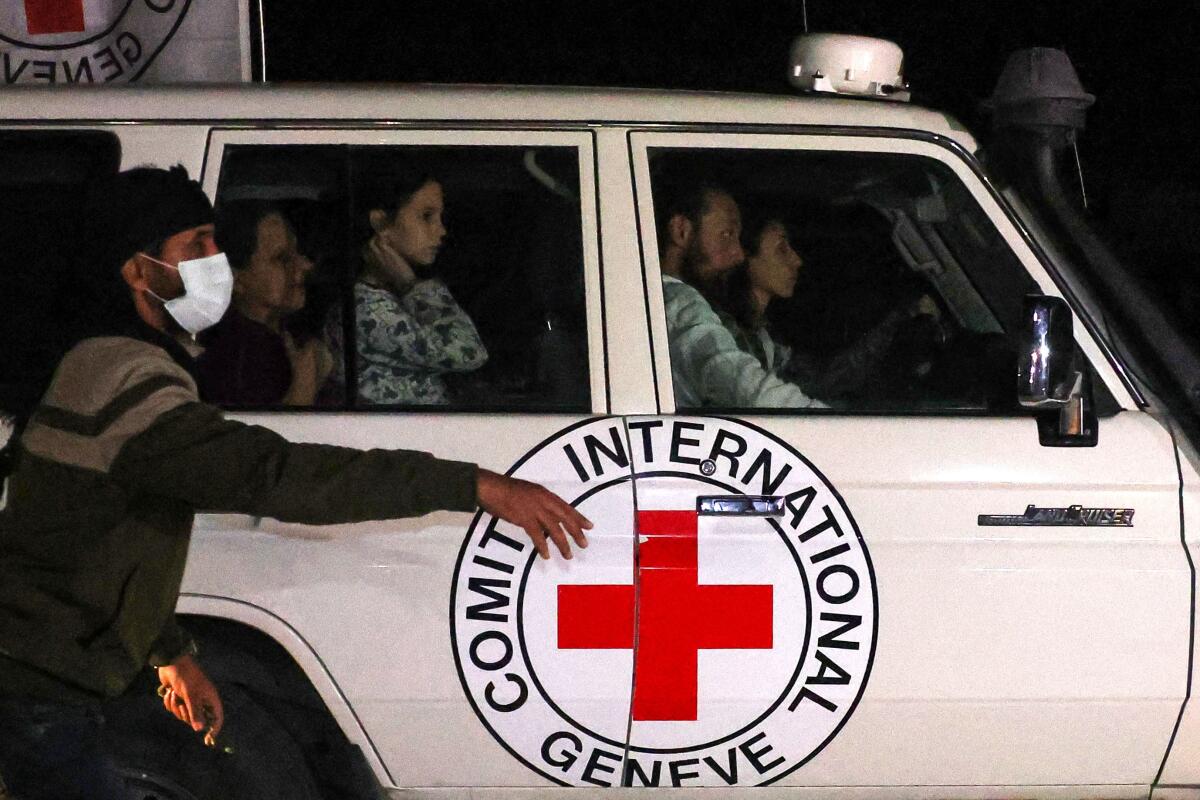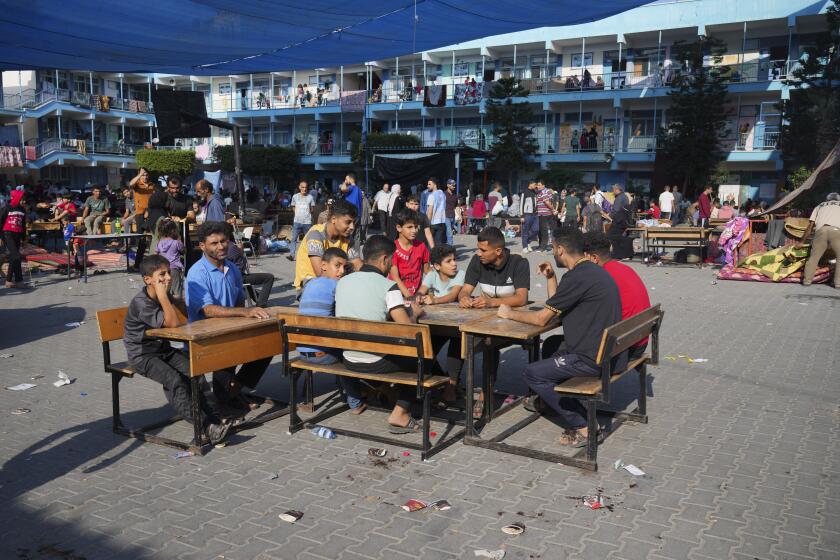Column: When it comes to Gaza, the U.S. has decided whose suffering counts more

President Biden was right to issue a statement this week marking the 100th day in captivity for many of the hostages kidnapped in Israel by Hamas militants on Oct. 7. But what he left unsaid shows a craven and chilling political calculus.
The president recognized the pain and suffering of the captives and their families. Of more than 200 initially taken, Israel says about 100 remain hostages. That dayâs strikes by Hamas left at least 1,200 dead.
Opinion Columnist
LZ Granderson
LZ Granderson writes about culture, politics, sports and navigating life in America.
The attack also started a war, which the statement conspicuously does not mention.
Israelâs response to Oct. 7 has killed more than 24,000 people in the Gaza Strip, mostly women and children, according to Palestinian authorities. No mention in the statement.
More than 50% of Gazaâs buildings have either been damaged or destroyed. Bidenâs 100th-day message doesnât acknowledge that.
Israeli leaders have achieved their expansionist goals in the West Bank by carrying out widely abhorred policies illegal under international law. They are doing that again in the destruction of Gaza.
The United Nations is warning of famine and disease in Gaza because of the war that has unfolded since Oct. 7. Not a word in Bidenâs statement.
Somehow the White House arrived at the political calculus that it was best for Biden to ignore all the tragedies in which Israel is implicated. This feels uncharacteristically cold from a president known for his warmth.
South Africa made compelling arguments in its case charging Israel with genocide in Gaza. But the court should also weigh the ongoing threat of Hamas.
It would have been possible for the White House to issue a different kind of statement marking the 100th day since the Oct. 7 attack. Imagine a statement that shows empathy not only for kidnapped civilians but also for those killed, maimed, made homeless. The people still being held by Hamas deserve every effort to secure their release. They should always be in our thoughts. So should the hundreds of thousands of others in Gaza who are suffering because of Israelâs bombing campaign and blockade.
There must always be a space in our reflections for warâs casualties. It is that concern for all human life that informs the international laws and norms that give modern humanity some sort of guardrails.
With 20,000 dead in Israelâs bombing of Gaza, we feel compelled to prove our humanity. We have been denied agency as a people.
The omissions from the White House statement were deliberate. Biden chose to not acknowledge the tens of thousands of Palestinians who have died â many in places they were told would be safe, such as hospitals and designated shelters. As much as Israelâs war depends on American weapons, it also depends on American silence. We Americans should not abdicate our role in the suffering caused by this war.
And yet Bidenâs remarks didnât even acknowledge the war.
âI will never forget the grief and the suffering I have heard in my meetings with the families of the American hostages,â the statement read. âNo one should have to endure even one day of what they have gone through, much less 100. On this terrible day, I again reaffirm my pledge to all the hostages and their families â we are with you. We will never stop working to bring Americans home.â
I am in full support of those efforts.
However the United States can have multiple priorities. The administration can strive for the release of hostages while also supporting Israelâs right to defend itself while also recognizing that civilians in Gaza are suffering through no fault of their own. This warâs innocent casualties are not just Hamasâ hostages or those slain in Israel on Oct. 7, and we should beware of any comments that pretend otherwise.
Bidenâs statement on the 100th day matters because rhetoric becomes reality. The comments of lawmakers or presidents â or even candidates for those offices â will inform future foreign policy decisions, such as which nations to give weapons to. And those decisions have repercussions, such as tens of thousands of civilian deaths.
The White House was not wrong to focus the bulk of its statement on those being held hostage and their families. Their lives these last 100 days are almost unimaginable.
But so is the growing desperation in Gaza, and that is a concern of the Biden administration as well. We cannot accept a landscape in which itâs politically risky to acknowledge that innocents are suffering.
More to Read
A cure for the common opinion
Get thought-provoking perspectives with our weekly newsletter.
You may occasionally receive promotional content from the Los Angeles Times.















